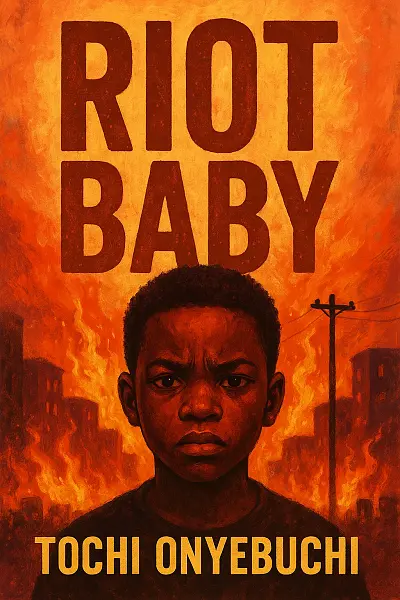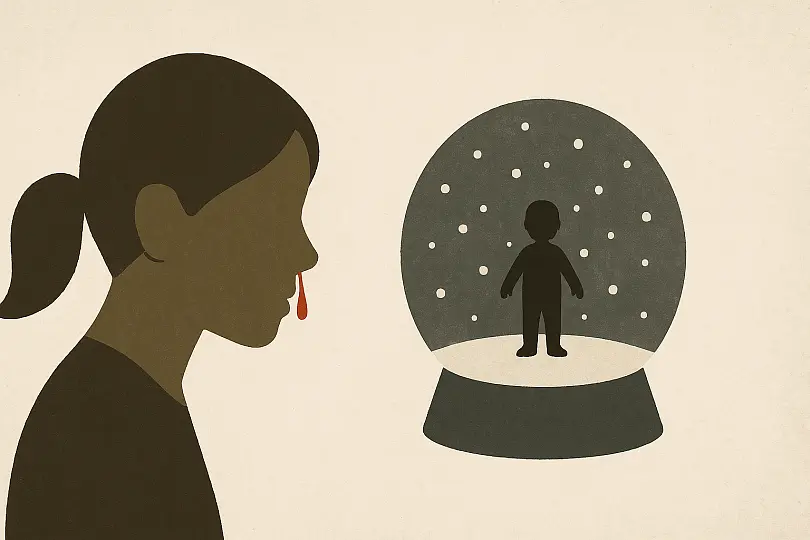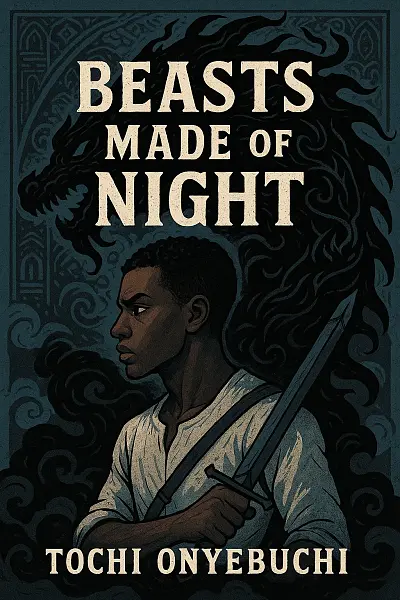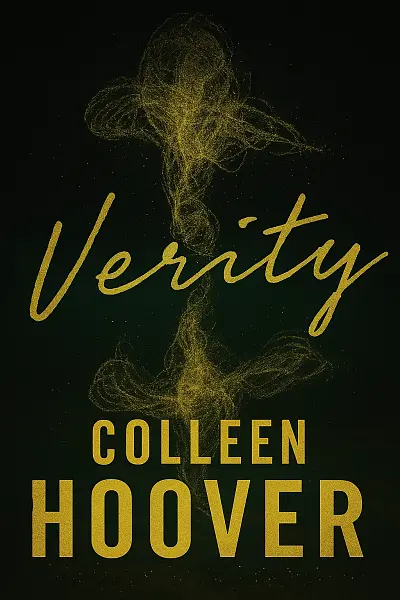
Riot Baby
by: Tochi Onyebuchi
Ella has a strange, electric gift—she can glimpse people’s futures, dangers, and pain simmering under the surface of her world in Compton. Life feels heavy and frantic, especially when her little brother Kevin is born just as riots explode and their family flees to Harlem. But moving can’t erase the violence and injustice shadowing them.
As Kevin grows into a young Black man under a surveillance state, Ella battles between protecting him and harnessing the true force of her powers. The siblings wrestle with rage, hope, and systemic oppression, pulsing through Onyebuchi’s writing with raw urgency—will they break free or be consumed?
"“Hope is a quiet flame that survives even when the world insists on burning itself down.”"
Let's Break This Down
The Author's Voice
Atmosphere
Riot Baby pulses with a raw, electric charge. Every scene crackles with a sense of unease and simmering tension, weaving together the grit of urban life with haunting, near-magical surreality. Expect settings that are both hyper-real and dreamlike—Onyebuchi plunges you straight into streets brimming with rage, hope, and a generational ache. The mood? Relentless, intimate, at times claustrophobic, always urgent.
Prose Style
Tochi Onyebuchi’s language is razor-sharp but also lyrical—think vivid imagery smashed next to abrupt, staccato bursts. The prose swings between poetic introspection and gritty directness, painting emotions in bold, sometimes bruising brushstrokes. Dialogue feels authentic and unvarnished, while narrative sections often break into something more fluid, almost musical. The syntax bends and flexes, creating rhythm and heat on every page.
Pacing
No slow burn here—this novella grabs you from the jump and doesn’t waste a single word. The pacing veers between rapid-fire action and sudden, deeply reflective pauses, reflecting both external conflicts and internal battles. Key moments hit hard and fast, while intermittent quiet scenes allow for breathing room, emotional resonance, and powerful character introspection. Some time jumps and narrative leaps can feel jarring, but they add to the dynamic, slightly disorienting experience.
Character Focus
Characters in Riot Baby leap off the page, feeling both familiar and mythic. Onyebuchi dives deep into his protagonists’ interior worlds, unveiling trauma, rage, love, and vulnerability with fearless honesty. Don’t expect traditional hero arcs—these characters are more like storm fronts: volatile, conflicted, and impossible to ignore.
Overall Feel
Reading Riot Baby feels like being plugged into a live wire. Every sentence demands your attention, immersing you in a world where pain and hope coexist in defiant, resonant harmony. It’s bold, unflinching, and at times beautifully unsettling—a genre-blurring experience that lingers long after you’ve turned the last page.
Key Moments
- Kev’s Harlem childhood haunted by helicopter blades and riot smoke
- Ella’s psychic rage trembling just beneath her skin
- Visceral flash-forwards to dystopian prisons—America’s broken promise on repeat
- Mother-daughter kitchen scene simmering with unspoken pain
- Surreal chapter breaks—time fractures, reality bends
- Sibling connection sparking like live wire, both fierce and fragile
- Revolution’s heartbeat: hope clashing with fury on every page
Plot Summary
Riot Baby tells the story of siblings Ella and Kev, set against a backdrop of Black American history and systemic oppression. Ella has supernatural powers that she struggles to control, especially after witnessing the traumatic aftermath of the Rodney King riots in Los Angeles. As Kev grows up, he’s swept up by systemic racism, ultimately imprisoned at Rikers Island where he’s subjected to violence and surveillance—Ella frequently visits him, using her powers to give him visions of a freer world. The story’s climax comes when Ella helps Kev escape incarceration, unleashing her full abilities as both siblings envision and strive toward a better, more just future. Their journey ends on a note of both liberation and uncertainty, with power and purpose still evolving.
Character Analysis
Ella is haunted by her extraordinary power and the overwhelming injustices she sees around her, making her both empathetic and isolated; her emotional arc moves from fear and restraint to intentional agency. Kev, initially portrayed as vulnerable and frustrated by circumstances beyond his control, gradually becomes more self-aware and empowered, especially after witnessing Ella’s gifts and confronting systemic brutality firsthand. Their bond remains central—Ella’s protective, Kev’s resilient—and both characters are transformed by their shared trauma, hope, and evolving sense of resistance. Through hardship, both move from passive suffering to active rebellion and reimagination.
Major Themes
Onyebuchi dives into themes of systemic racism and mass incarceration, mirrored in Kev’s personal journey through the criminal justice system and Ella’s psychic anguish. The novel relentlessly explores the trauma of being Black in America—violence, surveillance, and dehumanization—while simultaneously holding space for hope, resistance, and the possibility of radical change, seen through Ella’s visions. Power—supernatural and societal—is a constant question: who has it, how it’s used, and what revolution looks like. The bonds of family, especially sibling compassion, ground the story and offer both characters strength to confront oppression.
Literary Techniques & Style
Onyebuchi’s writing is raw, fluid, and atmospheric, often shifting perspectives and timelines to create a dreamlike, sometimes disorienting effect that mirrors the instability experienced by the protagonists. He leans heavily into symbolism (Ella’s powers as a metaphor for Black anger or potential), and the use of visions and memory serves as both literal plot device and figurative tool to explore trauma and liberation. The narrative’s fragmented structure actually enhances the sense of uncertainty and urgency, while detailed sensory descriptions make every scene vivid and immersive. Metaphors abound—especially around fire, riot, and confinement—underscoring themes of destruction and rebirth.
Historical/Cultural Context
Riot Baby is deeply rooted in real American events—kicking off with the LA riots of the 1990s and threading through Ferguson, the prison industrial complex, and a racially surveilled New York. The characters’ lives are profoundly shaped by the legacy of police brutality and institutionalized racism, reflecting on how Black communities are impacted across generations. Social movements, historical injustices, and current events are woven in, making the novel both a personal and political statement.
Critical Significance & Impact
This book stands out for blending speculative fiction with pointed social critique, earning praise for its emotional intensity and unflinching portrayal of racial injustice. Critics appreciate Onyebuchi’s refusal to offer easy answers, instead highlighting the rage and resilience of the marginalized. Its unique mix of gritty realism and speculative elements has sparked discussions about both genre boundaries and timely political issues, ensuring its place as a provocative, conversation-starting work in contemporary literature.

Rage and resilience collide in a visionary tale of Black power and justice.
What Readers Are Saying
Right for You If
Hey, so here’s the scoop on who’ll totally love Riot Baby and who might want to grab something else instead:
Who’s gonna vibe with this book?
- If you’re all about speculative fiction with a real-world punch, you’re in the right place. There’s a bit of sci-fi, a bit of magical realism, and a whole lot of emotionally-charged, socially-conscious storytelling.
- Love books that mess with structure and jump around in time? You’ll be into the way Riot Baby weaves the characters’ pasts and futures together—it’s not straightforward, but that’s half the fun if you like a challenge.
- Honestly, if you crave stories that wrestle with big themes—think race, power, policing, systemic injustice, and family bonds—this book delivers all that without holding back.
- People who like short but powerful reads—it packs so much into barely 200 pages, so you get that deep literary punch without slogging through a doorstopper.
- Fans of authors like Octavia Butler, Colson Whitehead, or anyone who appreciates ambitious, thought-provoking fiction will totally want to add this to their list.
Who might want to skip it?
- If you’re looking for a light, comfort read or fast-paced, plot-driven action, this probably isn’t your jam. Riot Baby is intense, and it’s more about exploring ideas and feelings than delivering a super clear-cut story.
- Readers who need a traditional, linear narrative—be warned! The timeline is jumpy, the perspectives shift, and some moments are more about mood than plot. If that drives you nuts, you might get frustrated.
- If you shy away from stories with tough, real-world topics (think police brutality, systemic racism), you might find this one too heavy or direct—it doesn’t sugarcoat anything.
- Folks who want tons of world-building like in big epic fantasies might feel this one is more pared-down, with the speculative bits sometimes taking a back seat to character and theme.
So, if you love books that take risks—both in style and substance—and you’re okay feeling unsettled while thinking deeply, Riot Baby is going to stick with you long after the last page. But if you need your stories cozy, straightforward, and easy, maybe save this one for another mood.
What You're Getting Into
Riot Baby by Tochi Onyebuchi is a gut-punch of a novella that blends raw social commentary with a touch of the supernatural. At its heart, it's about two siblings—Ella, who wields extraordinary powers she struggles to control, and her younger brother Kev, whose life is shaped by the violence and injustice around them in a near-future America. Their powerful bond faces massive challenges as they each grapple with hope, rage, and the dream of a better world in a society determined to hold them back.
Characters You'll Meet
-
Ella: Gifted with extraordinary psychic abilities, Ella grapples with harnessing her power while protecting her younger brother. Her arc is all about responsibility, rage, and the limits of hope in an unjust world.
-
Kev: Ella's younger brother and the novel’s emotional core, Kev is shaped by systemic racism and mass incarceration. His struggle is deeply personal—from childhood trauma to finding self-worth amid dehumanizing forces.
-
Ma: The devoted mother of Ella and Kev, Ma embodies resilience and fierce love. She’s a grounding presence whose sacrifices underscore the family’s generational pain and survival.
-
Manny: Serving as Kev’s childhood friend, Manny’s fate highlights the dangers and violence of their environment. His storyline amplifies the sense of heartbreaking inevitability woven through the book.
More Like This
If you’ve ever been swept away by the fierce speculative visions of The Fifth Season by N.K. Jemisin, Riot Baby taps into that same pulse—melding gritty reality with supernatural power in a world that feels achingly real, yet bristling with the possible. Onyebuchi's tight, haunting prose also draws comparisons to The Underground Railroad by Colson Whitehead; both works expertly intertwine historical pain and contemporary urgency, crafting stories that ricochet between horror and hope, the personal and the political.
For fans of Black Mirror, there’s an undeniable synergy in the way Riot Baby bends the rules of reality to interrogate our society’s deepest flaws. Much like the series, Onyebuchi uses speculative elements not just for thrills, but as a striking lens on power, oppression, and resistance, leaving you both disturbed and hungry for change. If you crave genre-bending stories that dare to tackle racial injustice through visionary storytelling, this one will stick with you long after you turn the last page.
Critic's Corner
What do we owe those born into broken systems, and is hope possible when the world seems calibrated for despair? Tochi Onyebuchi’s Riot Baby explodes these questions with ferocious energy, inviting us into a world where rage is not just emotional but elemental—a survival mechanism, a vision, a curse, a revolution.
Onyebuchi’s writing crackles with urgency, style, and risk. Sentences ricochet between brutally clipped realism and wild surges of the surreal, mirroring the internal storms that batter his characters. He confidently bends time and perspective, relying on flashbacks and fractured vignettes that toss us between Compton’s gang-torn streets, Harlem's tense chill, and the vicious sterility of a near-future prison-industrial landscape. There’s a rawness to his prose—jagged, rhythmic, and visual, almost tactile in its depiction of trauma and power. But he’s just as adept with intimacy, mining quiet confrontations for their unspoken ache. This mosaic, though sometimes dizzying, feels intentional: life for Ella and Kevin is fragmented, haunted, and perpetually in flux. If there’s a flaw here, it’s that this intensity sometimes sacrifices clarity, leaving some emotional beats underdeveloped or hard to grasp on a first read. Still, every page pulses with conviction.
Beneath this electric surface, Onyebuchi takes on some of the most urgent themes of our era. State violence, racism, surveillance, and the carceral state: these are not just backdrop but animating force. Through Ella’s supernatural powers—her “riot baby” gift—Onyebuchi interrogates the grotesque limits placed on Black life and ambition in America. The speculative element serves not as an escape, but as a magnifying glass for everyday injustices, pushing readers to ask: if you truly saw everything, could you bear it, or would you burn it all down? Hope here is hard-won; Onyebuchi refuses easy catharsis, instead mapping the slow alchemy of trauma into resistance, and rage into possibility. The power dynamic between siblings Ella and Kevin, one burdened with magic and the other shackled by systemic forces, becomes a poignant metaphor for communal grief and the longing for transcendence. At its best, the novel acts as both mirror and prophecy—timely in its politics, timeless in its heartbreak.
Comparing Riot Baby to other recent Afrofuturist tales—like N.K. Jemisin’s urban symphonies or Colson Whitehead’s historical reimaginings—it distinguishes itself by laser-focusing on personal inheritance, violence, and the spectral weight of trauma. Onyebuchi’s fusion of street-level realism and speculative rage situates him at the crossroads of Octavia Butler and Ralph Ellison, but with a jazzier, rawer beat. It’s a debut novella that punches far above its weight class and broadens the horizons of contemporary speculative fiction.
If there’s a weakness, it’s that the novel’s elliptical structure occasionally distances the reader, leaving emotional payoffs less immediate than they might be. But its ambition and artistry more than compensate. Riot Baby is a searing, unforgettable vision—a necessary, uncomfortable meditation on Black pain and Black power, designed to haunt the present and galvanize the future.
Community Thoughts
What did I just read? Riot Baby spun my mind with its explosive energy and raw emotion. Ella’s power felt like a live wire, sparking off the page. I’m still not sure if I loved it or if it broke me, but it’s unforgettable.
kelly’s power made me sit up at 2 am, heart racing, as if the world outside my window might suddenly ignite. Onyebuchi’s writing stole my dreams and replaced them with raw, electric fear.
I CAN'T STOP THINKING ABOUT ELLA. Her rage, her power, her heartbreak—she’s a ghost in my mind, whispering that nothing is ever safe. Onyebuchi makes her unforgettable and I’m not sure I’ll ever feel the same.
kelly’s rage just clung to me. i kept thinking about her power and the way it felt like she could burn the world down or save it. haunted me for days, i swear.
I still can't get Kel out of my head. His journey, his pain, his hope—all of it lingered long after I finished. Onyebuchi crafts characters that haunt you, refusing to let go.
Leave Your Review
Local Take
Why It Matters
Riot Baby by Tochi Onyebuchi totally sparks something powerful in American readers, especially with its intense look at racial injustice and systemic oppression.
Parallels with Local History:
- The story’s echoes of events like the 1992 Los Angeles riots and the Black Lives Matter movement make it feel almost eerily familiar here. That raw anger, hope, and hurt Onyebuchi’s characters navigate? It all resonates deeply against America’s own ongoing reckoning with race and police brutality.
Cultural Values:
- The theme of family resilience and sibling bonds hits a sweet spot—there’s a huge cultural appreciation here for sticking together in tough times.
- Yet, Onyebuchi’s portrayal of relentless surveillance and disenfranchisement strikes nerves, often clashing with mainstream American ideals of justice and freedom.
Literary Traditions:
- Mixing speculative fiction with raw realism, the book tips its hat to local giants like Octavia Butler, but it also challenges the usual “hopeful” narratives by refusing easy solutions.
Certain scenes—especially those set in prisons or during explosive protests—land with extra impact, reflecting lived American experiences and ongoing debates. The whole novel feels urgent and necessary, engaging readers beyond just the page.
Food for Thought
Notable Achievement
Riot Baby by Tochi Onyebuchi received the 2021 World Fantasy Award for Best Novella and was a finalist for the Hugo, Nebula, and Ignyte Awards, cementing its reputation as a powerful and influential work within the speculative fiction landscape.
This novella has been widely praised for its searing exploration of systemic racism and the Black American experience, resonating deeply with readers and critics alike.
Like what you see? Share it with other readers







